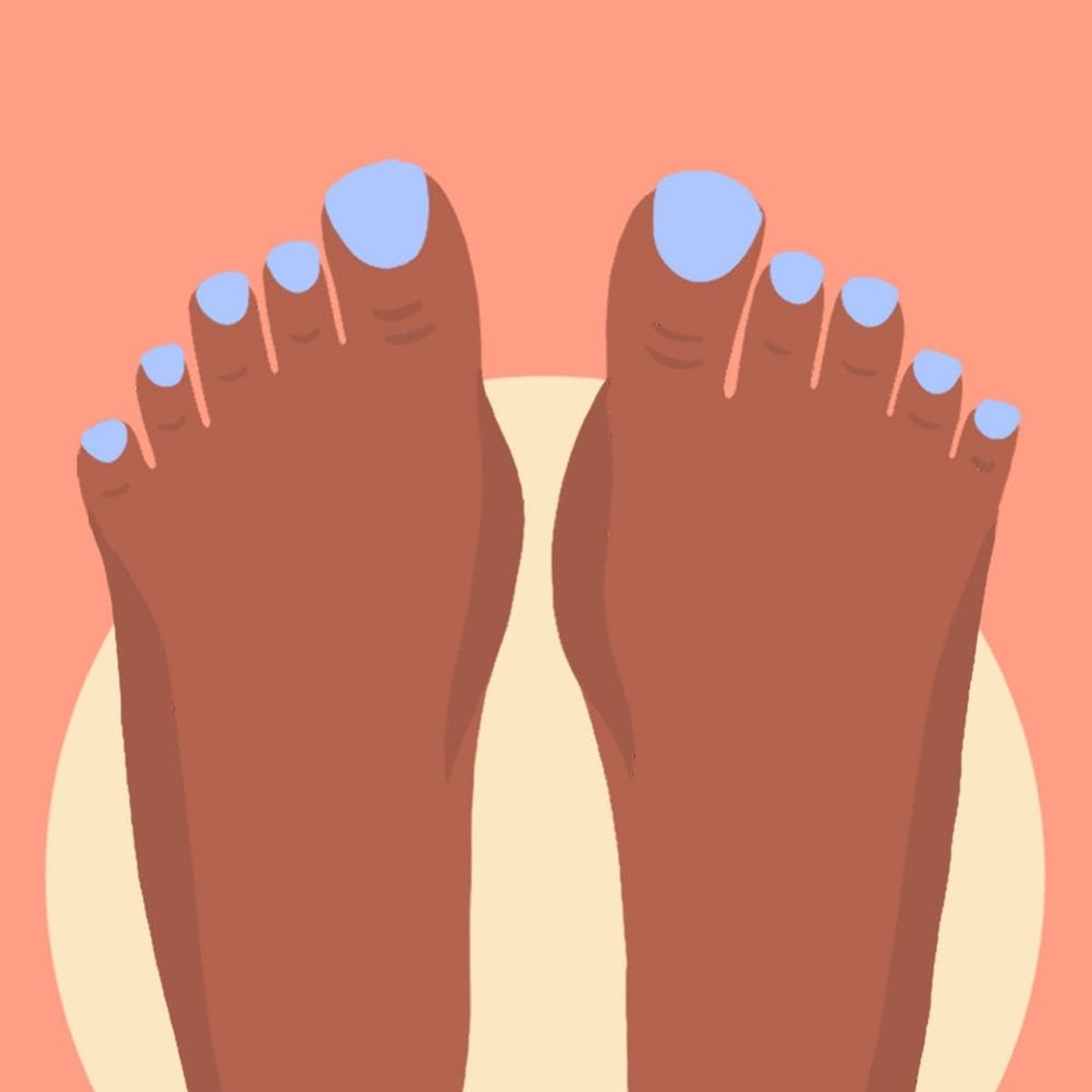Smelly feet, begone!
Why Do My Feet Stink (And How Do I Make Them Smell Better)?

As much as we love swapping tips and tricks to solve our biggest beauty dilemmas, there are some questions we may not feel comfortable asking our friends about, let alone Google without going incognito. Don’t worry. We’ve got you covered. In this series, we’re tackling those embarrassing beauty queries by turning to experts in the field to get you the answers you need — minus any awkward feelings.

There’s an anxiety-inducing horror in removing your shoes at a friend’s house only for bad B.O. to waft into the air. Stinky feet might be one of the most embarrassing bodily odors, but it’s a lot more common than you’d think. Below, find out what causes smelly feet and how to get rid of the odor STAT.
What causes stinky feet?

Going sans socks is a common culprit for foot odor, but stench can also occur with them. That’s because it’s not entirely about what’s on but what’s coming out of your feet (apologies for the visual). “Excessive sweating or hyperhidrosis is the number one cause of smelly feet,” says Sophia Soloman, a board-certified podiatrist at Manhattan Foot Specialists in New York City. When feet sweat, they essentially create a tropical rainforest inside your shoes (especially between the dark, moist crevices of your toes), or the type of environment odor-causing bacteria and fungus thrive in. (Photo via Happycity21/ Getty)
Not plagued with sweaty feet? According to Suzanne C. Fuchs, a board-certified podiatrist in Palm Beach Gardens, Florida, stinky feet “can be worsened by the type of shoes you wear, poor hygiene, or other foot issues such as fungal infections.” The upside to all of this is there are ways to make your soles smell better.
What’s the best way to improve foot hygiene?

Nip stench-causing hygiene in the bud and first look to your footwear. “I see a lot of people who like wearing shoes such as boat shoes or loafers without socks,” Fuchs notes. “This is a bad idea because the moisture or sweat from your feet will worsen by the fabric and friction in your shoe.” While sweaty feet can still occur, sweat-wicking socks help absorb excess moisture and can also decrease the amount of bacteria living inside your sneakers. “I recommend socks that are anti-bacterial such as those with copper or silver,” says Fuchs. She also suggests temperature-regulating fabrics (think: merino wool or nylon and polyester blends), since “cotton socks actually keep heat and moisture in and cause an increase in sweat and bacteria.” (Photo via Dmitry Belyaev/ Getty)
Then consider the way you wash your feet in the shower (or take note if you don’t). According to Fuchs, even if you skip a shower, you should still suds up your feet once or twice a day with soap and water. “Don’t forget to dry thoroughly, especially between your toes,” she says. Blotting post-rinse helps keep moisture out of those bacteria-prone areas and can reduce the risk of smelly feet.

Another way to ward off foot odor is to stock up on powders, sprays, and antiperspirants. When selecting a deodorizing product, reach for something that contains ingredients such as moisture-absorbing white clay or arrowroot powder, as well as essential oils like lavender or eucalyptus to help improve the smell overall. Fat and the Moon’s Healing Foot Powder ($12) checks both of these boxes with a formula enhanced by white clay, black walnut hulls, arrowroot powder, tea tree oil, and lavender essential oil. Together these ingredients countercheck stench-causing bacteria and protect against fungus formation as a whole.
If your feet still stink (even after trying all of the above), you could have a fungal infection. Be sure to check in with your doctor to rule out any issues that require a prescription foot lotion or other medical-related remedies.
Have any more awkward beauty questions? Let us know @BritandCo!
Brit + Co may at times use affiliate links to promote products sold by others, but always offers genuine editorial recommendations.



















